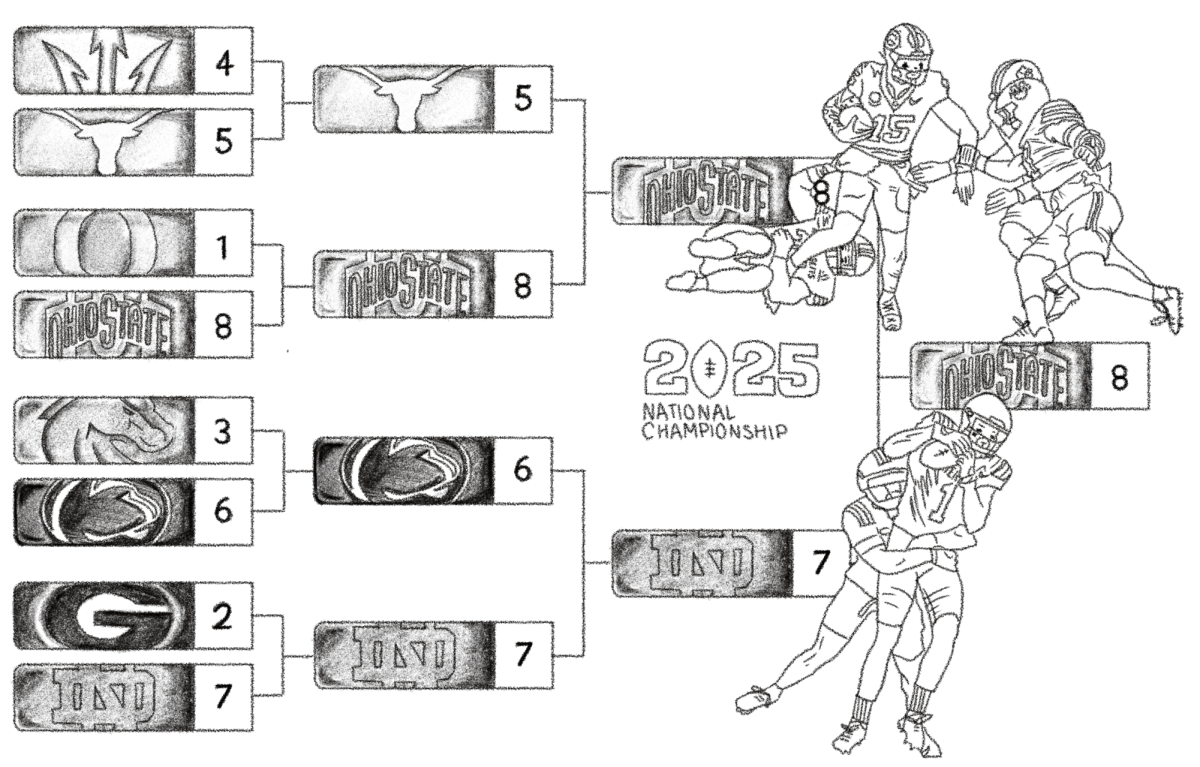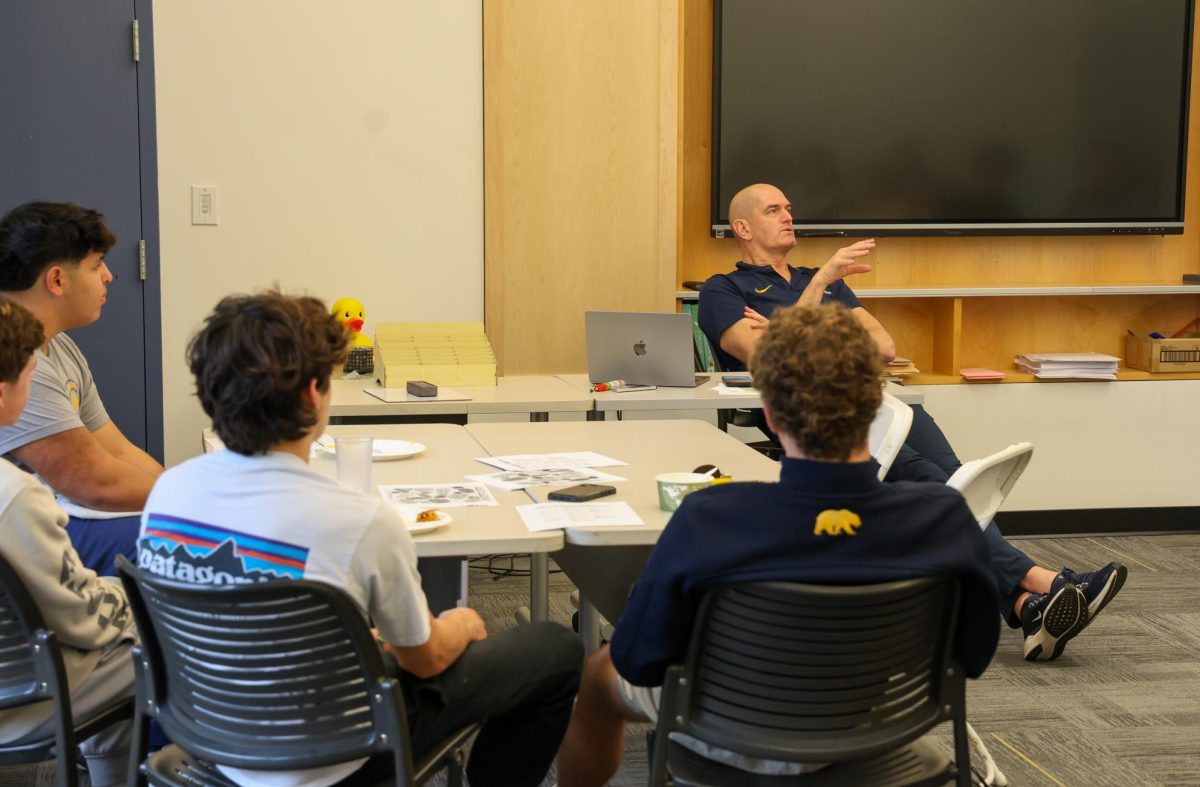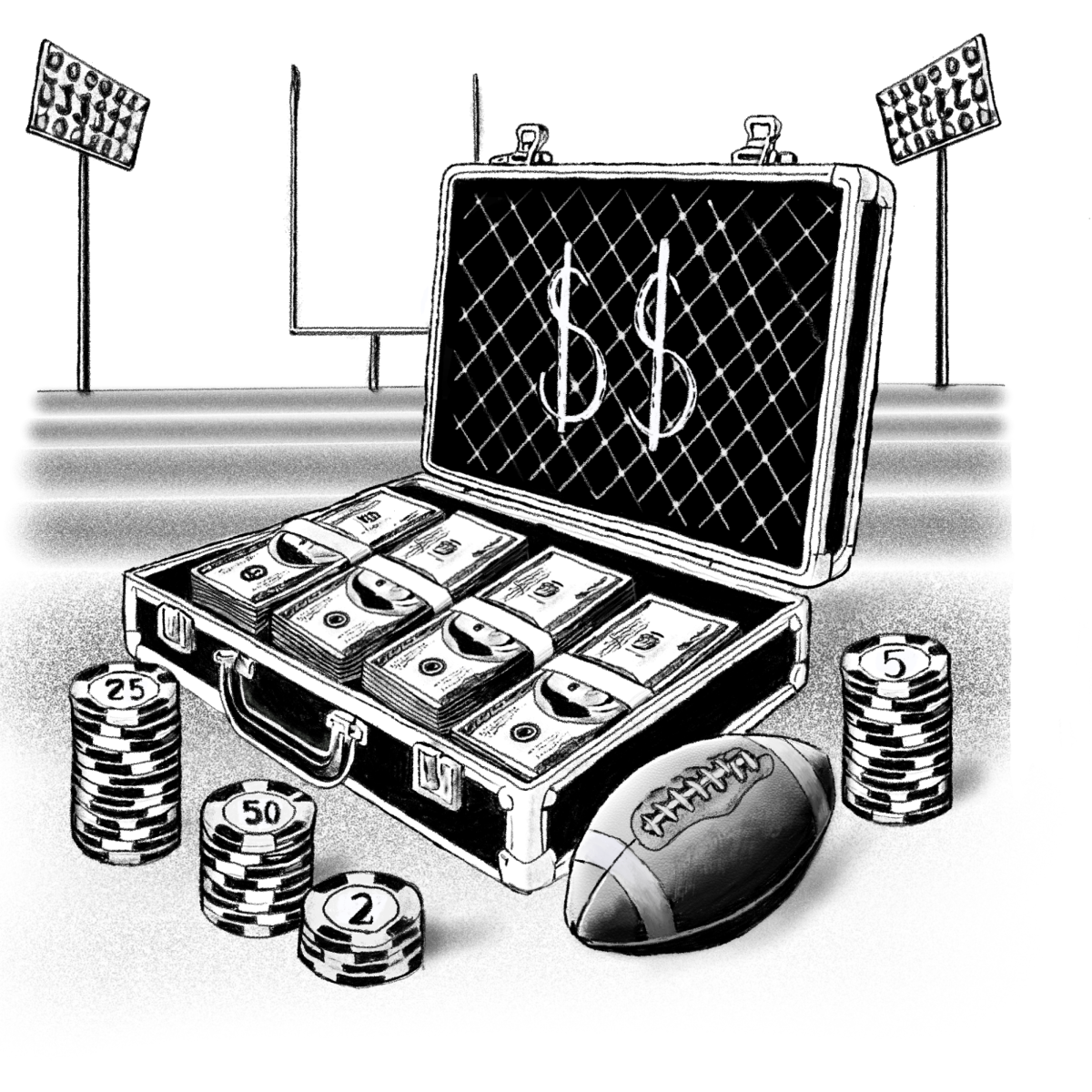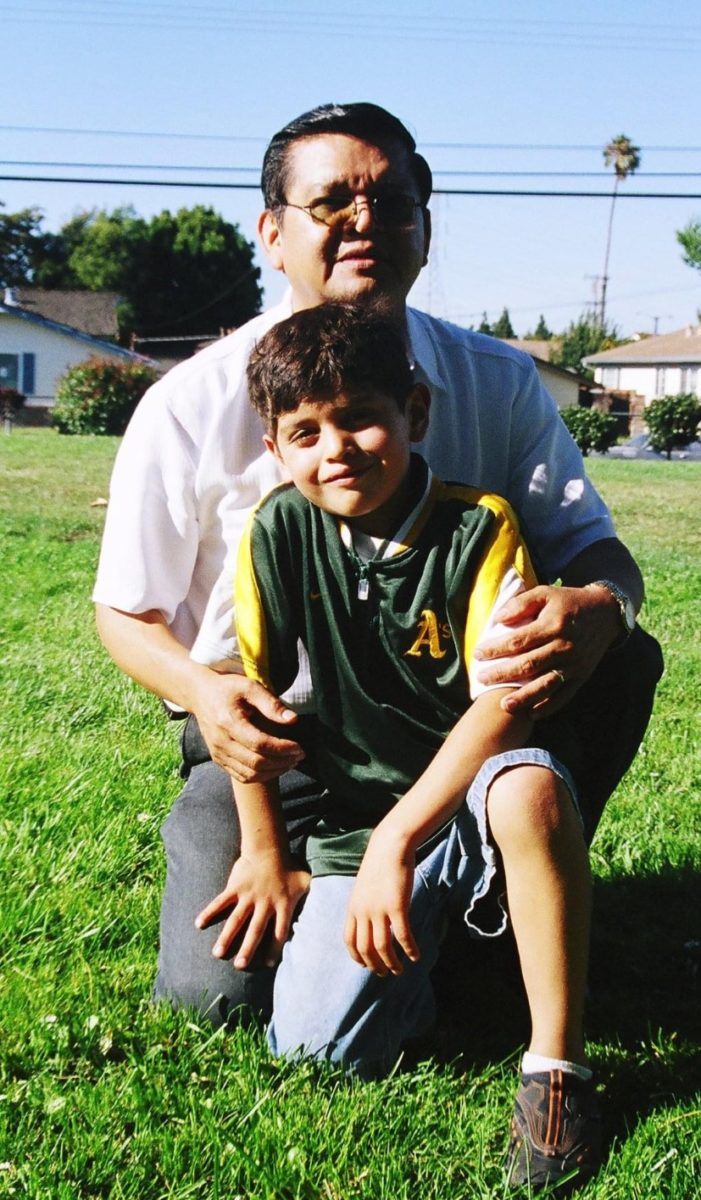After some confusion about the state of the boys soccer season, Assistant Sports Editor Baily Deeter investigates the rise in penalties and the next phase of the season after winning league. Photo courtesy of Pam McKenney.
By Baily Deeter.
The Menlo soccer team is currently in the midst of one of its best seasons in program history. The boys have already captured their second league title in program history after sweeping rival Sacred Heart Prep. However, in spite of all of this success, much of the focus regarding the team lately has been centered around a different story.
So far, the varsity program has accumulated three red cards on the season, with one each coming from junior Marc Velten-Lomelin, senior Zeke Coxe, and head coach Marc Kerrest. Kerrest is currently in his fifth season at Menlo; in his previous four seasons with the team, nobody had been given a red card at any point in the season.
Initially, there was some confusion among players and coaches as to what would happen if the team got a third red card. After Coxe’s red card on Feb. 1, Athletic Director Kris Weems talked to the team before their scrimmage against University Prep on Friday, Feb. 3. “[Weems] told us that if we got another red card, we would be done for the season,” junior captain David Quezada said.
Weems mentioned that the purpose of the meeting was to reinforce the core program values. “I wanted to remind them what their values are and what we are about in the athletic department,” Weems said. “We play hard, we play smart, and we play fair.”
On Wednesday, Feb. 8, following Weems’ address, senior Daniel Hausen got a red card for a tactical foul, and Kerrest received a red card shortly afterward. According to Kerrest, Hausen’s red card has been, in the eyes of both himself and Weems, correctly overturned. However, Kerrest did not appeal his red card, which leaves the team at three for the season. “It was important that Daniel not be suspended [for the team’s next game against Harker],” Kerrest said. “I thought that if we appealed both red cards, they would both be rejected.”
After Kerrest’s red card in the Eastside game, a lot of players believed that their incredible season had come to an abrupt halt. “On the field, I was getting pretty emotional. I thought that I was going to have to pack up my gear,” Quezada said.
However, after the game, the team was told by Kerrest that, in fact, their season was not over. Naturally, there was lots of confusion amongst players and coaches as to what the actual rule is and where the misunderstanding came from.
“I incorrectly gave the team the information that if the team got their third red card, they would not be able to compete in the postseason,” Weems said. After the team’s third red card against Eastside, he reviewed CCS policy and determined that the team is actually currently on probation. “Because of what’s happened, we have more eyes on us from the section,” he said.
Kerrest also believed that another unsportsmanlike red card would end the season, and he believes that the confusion came from a collective misunderstanding of an official email from the CCS. He was sent a screenshot of CCS policy that outlined the punishments for a team with one, two, and three red cards on the season. The CCS policy for a third red card is probation, which was misinterpreted to mean that the team’s season would be over.
“I thought probation, given that [the screenshot did not contain any punishment for a fourth unsportsmanlike red], meant that the season was over,” Kerrest said. The miscommunication caused the team to initially believe that the third red card on Hausen and the fourth on Kerrest had ended their season, although they soon found out that was not the case.
A fourth red would revoke their privileges to host any CCS playoff games, as well as strip them of one non-league game for next season. If the Knights were to get a fifth, no punishment is officially outlined on the CCS page. However, Weems shot down any rumors of the season being terminated.
“We are not in jeopardy of not playing this season,” Weems said.
Additionally, receiving a total of two red card would end a player’s season.. When the team gets to the CCS playoffs, any individual player who were to get a red card would be suspended for the rest of the tournament.
With that said, it may seem that, with the team’s three red cards on the season, this would be an issue that deserves to be emphasized highly. However, Kerrest made the point that he isn’t too worried about any other potential penalties. “We’ve gotten three [red cards] in a short span, but in four and a half years, we got zero,” Kerrest said.
He pointed out that the red cards have been brought about by mostly outlier scenarios. “The first two red cards came from mostly isolated incidents,” Kerrest said. He made a point to highlight that he had no problems with the official’s decisions on those two incidents. “In the games where we got the first two red cards, the official was actually the best I have ever had coaching at the high school level,” Kerrest said.
The officiating in the third game, however, was a different story. “A straight red card [on Daniel] was completely out of line. The play was not even a foul.” With Hausen, who Kerrest believes should be the league MVP, out of the game, the Knights’ man-down offense was stagnant for the remainder of a winnable game.
As for the red card on Kerrest, he also believes that the referee’s decision was blown out of proportion. Kerrest simply asked for an explanation for why Hausen was given a red. When the official said he’d give him one after the game he was given a yellow card for explaining his perspective that the call was incorrect and that there should have been no foul. “I’m not sure how that’s a yellow card,” Kerrest said. “The referee was clearly in the wrong that day but I should have stopped talking once I got a yellow card, especially given how poor the official was. I was caught up in the moment and didn’t. Though nothing I said deserved a second yellow, that was my mistake.”
While Kerrest certainly did not agree with some of the referee’s decisions during the game, the Knights are focused on moving forward to the upcoming CCS tournament. Kerrest believes that the team can proceed without being worried about any future incidents of this sort. “We play very clean soccer,” he said. “We talk frequently about respecting our opponents. We’re not a dirty team.”
Weems agreed with Kerrest, pointing out that Menlo athletics creates an environment where respect for the opponent and for the game is paramount. “Sportsmanship and respect for others are major components of our athletic department culture and our school values,” Weems said. He also pointed out how he will address the team again with a sportsmanship talk that takes place before each CCS playoff season.
With the CCS playoffs on the horizon, the Knights aim to put the red cards in the rearview mirror in hopes of claiming their second CCS championship in school history.













